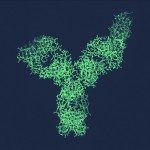Lien vers Pubmed [PMID] – 19969101
Drug Discov. Today 2010 Mar;15(5-6):220-9
Protein-protein interactions (PPIs) are one of the next major classes of therapeutic targets, although they are too intricate to tackle with standard approaches. This is due, in part, to the inadequacy of today’s chemical libraries. However, the emergence of a growing number of experimentally validated inhibitors of PPIs (i-PPIs) allows drug designers to use chemoinformatics and machine learning technologies to unravel the nature of the chemical space covered by the reported compounds. Key characteristics of i-PPIs can then be revealed and highlight the importance of specific shapes and/or aromatic bonds, enabling the design of i-PPI-enriched focused libraries and, therefore, of cost-effective screening strategies.

